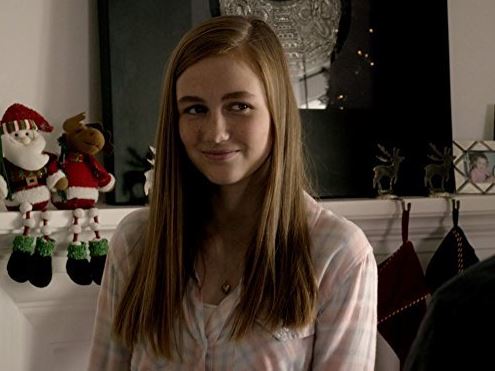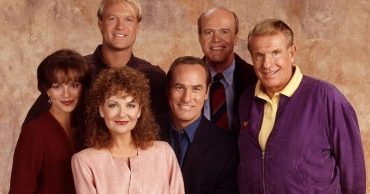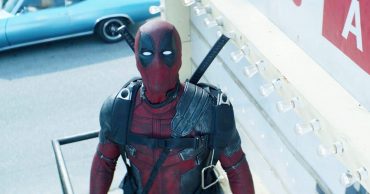
If you couldn’t tell Raynard Waits was running around with a death wish, this episode of Bosch makes it pretty clear, with characters referencing the killer’s “endgame” currently in play, toying with the one cop on the LAPD he knows isn’t afraid to put a bullet in him. And “Donkey’s Years” makes a lot of other things clear, too: taking a road trip to Vegas offers us a glimpse into Bosch’s previous life, while his always-pristine deductive skills tell everyone exactly what happened in the Delacroix family. In other words, there’s a lot of explaining happening in the sixth episode of Bosch – and the few moments it decides to show us instead, are easily the richest of the episode.
Surprisingly, it’s not Raynard’s latest round of rampage that proves the most interesting storytelling avenue of the hour; or maybe it’s not such a surprise that Raynard is running around unseen in Los Angeles, murdering people in the open and taunting Bosch by calling him on his prehistoric cell phone. This material isn’t all that entertaining, and gives the feeling that Raynard is wearing out his welcome quickly on this show, while we wait for the final, devastating/personal act of violence he commits that effectively marks the end of his life, and Bosch to react to that. Bosch so far has been resistant to embracing unusual or unique story paths: like previous episodes, events pretty much occur in “Donkey’s Years” as anyone would expect them to, devoid of surprises, unless you consider the daughter of the Lacroix family beating on poor Albert because her father was raping her (yup, turned out his confession was a red herring after all).
No, the only time Raynard becomes an interesting figure is in the context of Harry’s conversation with his ex-wife Eleanor (Sarah Clarke from 24; I’m thinking she won’t be a nasty mole here), a scene that speaks to exactly why these two fell for each other (clearly, Bosch has a thing for cops), and why they didn’t work out together in the long run. The presence of Bosch’s true family offers us insight into the character we just don’t get around Brasher, the closest we’ve seen to Bosch opening up to another human. Here he’s having fun taking his daughter to the shooting range, and getting a rise out of prickling his wife into helping him with Raynard’s profile; these scenes lift Bosch out of the thoroughly gray world he lives in, and give him some definition.
What really stands out is his daughter, who doesn’t seem to go through the same predictable “Daddy come home!” beats we often get on these cop shows; Maddie understands that her father is someone who doesn’t necessarily work with other people, and the easiness of their relationship, how it packs right back up where it left off on the phone months ago (and in person years ago). No, it’s not exactly revolutionary, and Bosch doesn’t go anywhere with it, really, but it does give Titus Welliver some room to bring some range to his performance, which has mostly been stuck smoking cigarettes around dead bodies and rapists, situations that don’t give Harry’s personality room to breathe beyond the signature McGruff the Smoking, Cursing Crime Dog routine (which Welliver is great at, nonetheless).
Those few scenes, however, don’t stop “Donkey’s Years” from still feeling like it is lacking in some way – and I keep coming back to Raynard, even though I do think Brasher is getting a raw deal from the writers right now. Raynard’s story is so effortlessly familiar, it’s easy to get lost in the rhythms of it in the episode: pull back the lens, and there aren’t any new or fun angles being explored with our killer, at least not of yet. He’s mentally disturbed from a sexual assault as a child (boy, that happens to everyone on this show), and he likes to kill gay guys because of a conflicted sense of homophobia: these are all words various psychologist characters on legal teams have used many, many times over – and Bosch hasn’t offered us much more yet than a medieval French literature reference (Renard the Fox). As Waits plays his mind games with Harry, the viewer is mostly left to stand on the sidelines, waiting for the moment the big clue breaks and these two stories start to come together, at least thematically – and until then, it appears Bosch is mired in the predictable, circling around stories and characterizations as it waits to kick its own endgame into high gear in the next few episodes. Let’s just hope those upcoming revelations and twists add up to more than what we’ve got so far.
[Photo via Amazon]
 Follow Us
Follow Us




